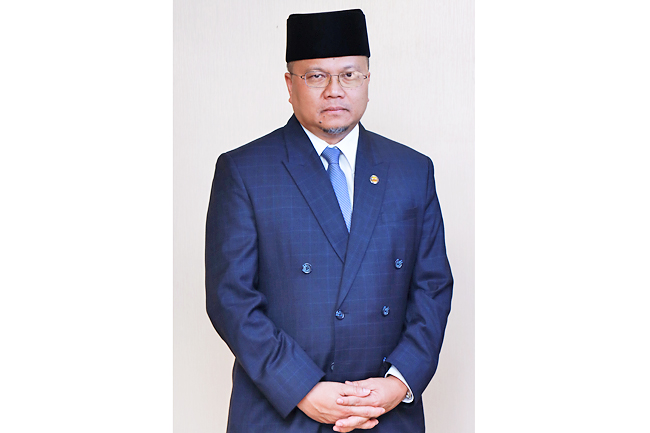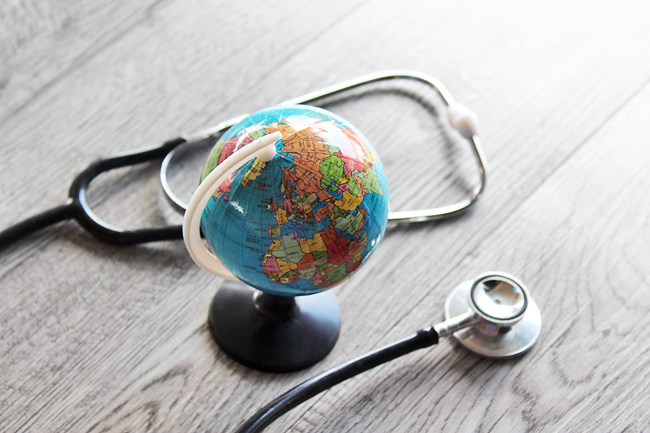James Kon
The Ministry of Health (MoH) reaffirmed its commitment to strengthened the nation’s healthcare system through universal health coverage, ensuring services can be accessed fairly by all.
In a World Health Day message, Minister of Health Dato Seri Setia Dr Haji Mohd Isham bin Haji Jaafar said that the celebration this year is an opportunity to reflect on the successes of public health and how it has improved the quality of life over 70 years. “It is also an opportunity to drive action and address current and future health challenges,” he said.
“The World Health Organization (WHO) has chosen ‘Health For All’ as this year’s theme, for the vision of every individual having good health in a peaceful, prosperous and sustainable world.
“Health is a basic right. Each person has the right to receive quality health services, easily accessible and without being burdened financially, in accordance to the principle of universal health coverage.
“This principle can lift communities from poverty, encourage wellbeing and protect against public health crisis,” said the minister.
“According to WHO, 30 per cent of the world population currently do not have access to basic health services. Meanwhile, nearly two billion people are struggling with severe financial problem caused by their health requirements.
“Such matters are obvious among vulnerable communities, including people with a low socioeconomic status, minorities and senior citizens,” he said.
The minister said the availability of skilled healthcare workers and people-centric health services is important to realise the vision of ‘Health For All’.


“Evidence shows that most effective and efficient health system from a cost aspect is through the delivery of personalised health services which is close to the community.
“The COVID-19 pandemic has proven that strong basic healthcare is an important component of preparedness in dealing with any emergency especially in support of emergency response and management,” said the minister.
BND418,098,270 has been allocated in this year’s government budget for the MoH, said the minister. “Investment for a strong health system is critical for the well-being of a community.
“Increase in public funding for health and lowering out of pocket cost can save lives and help achieve sustainable development goals.
“Alhamdulillah, in Brunei Darussalam, we are very fortunate,” said the minister.
He said all citizens and residents in the country can receive quality and easy to access health service in all districts, available by the government through the MoH.
“This included the availability of four hospitals, 14 comprehensive health centres, six health clinics and two air medical clinic services,” he said. The ministry is also currently looking into construction of new health centres under the National Development Plan.
The ministry has also doubled its efforts to further strengthen existing specialist services in all four government hospitals, said the minister.
“Steps have been implemented for health infrastructure development and improvement, including the upgrading of existing facilities in accordance with standards established in the control and prevention of infectious diseases.
He said the ministry has expanded medical services in various specialisations with the implementation of programmes and new techniques in providing treatment using sophisticated and up-to-date equipment.
Specialist treatments are not kept only to government hospitals, but can also easily access in specialist medical centres like Pantai Jerudong Specialist Centre (PJSC) and Gleneagles JPMC, he said.
The minister said apart from health services, providing a conducive environment to a healthy lifestyle can also change lives.
“WHO has recommended for increasing the rate of ‘health taxes’ or taxation on tobacco, alcohol, sugar and fossil fuel,” he said, adding that the country was the first in ASEAN to excise duties on sugary drinks in 2017.
“In the long run, this action can reduce the rate of non-communicable diseases like obesity and diabetes,” he said.
Meanwhile, WHO expects a shortage of 10 million healthcare workers health between 2023 to 2030, said the minister.
“Therefore, investment in education in the field of health is very necessary,” he said.
He said ministry is working with higher education institutions to increase the local health workforce.
“To conclude, the MoH would like to urge the public to work together, live a healthy lifestyle and be more actively involve in activities relating to taking care of the health of oneself, family and community.
“We must together appreciate the blessings of health, safety and the prosperity bestowed by Allah the Almighty.
“Let us pray together for vision of ‘Health For All’ to become a reality,” said the minister.


